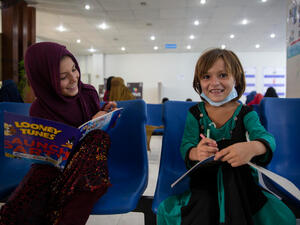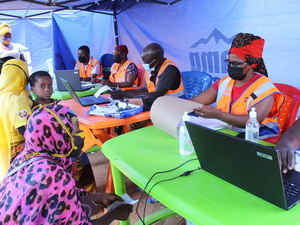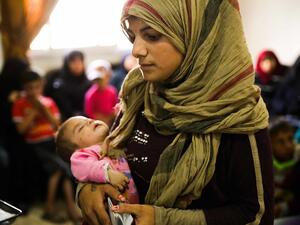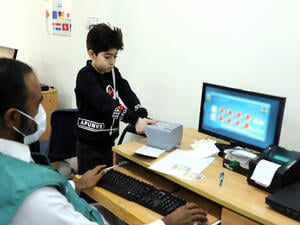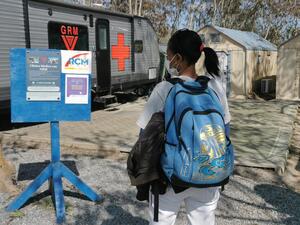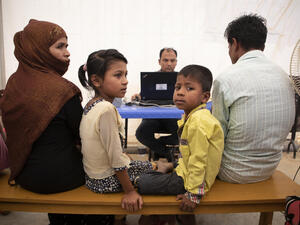Mobile registration project for Colombian refugees in Ecuador
Mobile registration project for Colombian refugees in Ecuador
A mobile team of 50 government workers supported by UNHCR this week began work on registering and providing refugee documents to some 50,000 Colombian refugees who have fled insecurity in their homeland and have settled in northern Ecuador. The so-called Enhanced Registration project is unprecedented in Latin America. It began on Monday in the small community of Muisne, in the province of Esmeraldas, and will continue for at least a year and cover every province along the northern Ecuadorian border.
UNHCR is supporting the Ecuadorian government in this complicated logistical effort that will cost some $2 million - 80 percent of it from UNHCR. The remainder is to be provided by the government. At the moment, we still face a shortfall of $800,000 which we will have to raise with the cooperation of donor countries.
The importance of the Enhanced Registration project is twofold: it shortens the waiting period for a government decision on asylum claims from several months to just one day; and it takes the asylum process to the field, where many refugees have been living for years and were unable to access asylum systems in urban areas because they didn't have the resources or because they feared being detained.
In the first three days of the Enhanced Registration project, more than 200 people received refugee visas. As the mobile teams travel north in the Esmeraldas province, the numbers are expected to grow as the presence of Colombians is more numerous near the border.
Those carrying out the project were recently hired and trained by the Ecuadorian government and UNHCR. In total, the project required the purchase of more than 40 computers, electric generators, nine vehicles, visibility materials and a implementation of a communications campaign, all procured by UNHCR.
Currently there are 22,000 registered refugees in Ecuador, but the government and UNHCR estimate that the total number of persons in need of international protection could be close to 135,000.


